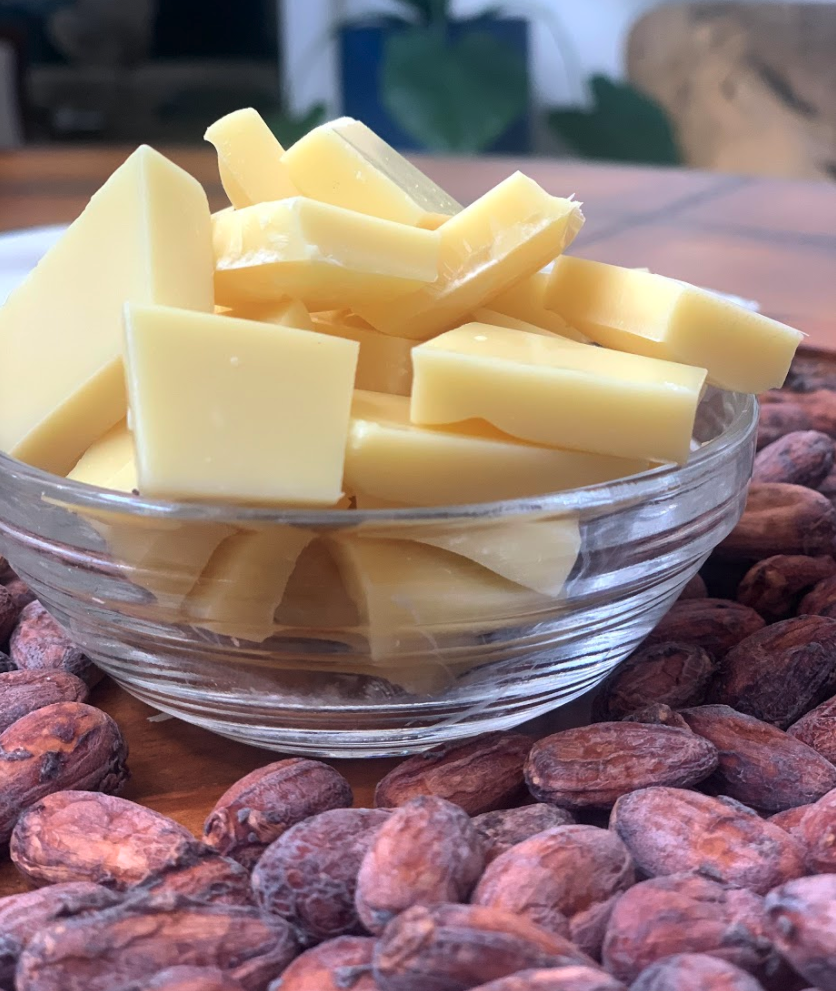
About Our Products
cocoa beans
Cocoa beans are the seeds of the Theobroma cacao tree and are grown within oval-shaped cocoa pods. When the cocoa pods are fully ripened, the outer husk of the pod is sliced open to remove both the white mucilaginous pulp as well as the cocoa beans (30 to 40 beans per cocoa pod on average).
There are three main varieties of cocoa beans:
Criollo - a premium variety of cocoa beans known for light color, nutty flavor and pleasant aroma with origins primarily from South America ; accounts for approximately 2% of the world's production of cocoa as these cocoa trees are more susceptible to pests and disease
Forestero - the most commonly grown variety typically of a darkish hue, robust flavor and high fat content with origins mainly from West African and High Amazonia producing countries (subtype is Amelanado); accounts for approximately 80 - 90% of the world's production as the plant is known to withstand more severe climatic conditions
Trinitario - a hybrid of both the criollo and forestero varieties known for its rich flavor profile, with its origins from Trinidad; accounts for approximately 10 - 20% of world's production
After the cocoa beans are removed from the cocoa pod, a robust fermentation process is employed whereby the beans are stored on top of plantain leaves or in baskets for up to six days. The beans are subsequently naturally dried for five to ten days on average.
Ghana's cocoa beans are known to be of superior quality and flavor relative to other producing origins. In pursuit of meeting the complete satisfaction of our clients, KANY offers conventional cocoa beans as well as certified organic cocoa beans.
Industry-certifications include: Fair Trade, FairTrade International, Kosher, Halal, JAS Organic, and USDA Organic.
cocoa nibs
After a thorough quality assurance inspection to remove any defects and/or foreign irregularities, the cocoa beans are sorted and subsequently roasted at ~150°C ('micronizing' process), evaporating waste moisture and acid compounds. Roasting is a key component of the manufacturing process as this will determine the flavor profiles and future quality of the finished chocolate.
The roasted cocoa beans are then coarsely crushed (or 'winnowed'), separating the outer shells from the inner nibs. Cocoa nibs are high in natural fat (or cocoa butter), which constitutes ~55% of the nib. At this stage, the nibs can be sterilized and alkalized to reduce the acidity (increasing pH) and help further develop flavor and color.
cocoa liquor (mass)
The cocoa nibs are processed through a milling system whereby they are roasted at a temperature between 100°C - 150°C. The resulting product is the viscous cocoa liquor (also known as cocoa paste and/or solid cocoa mass). The cocoa liquor is further ground to achieve an optimal quality and fineness level.
Cocoa liquor is the base ingredient for finished chocolate, as this can be blended with cocoa butter and other ingredients to produce various types of chocolate.
KANY offers both natural and alkalized cocoa liquor.
cocoa butter
The finely-grounded cocoa liquor is hydraulically pressed to extract both cocoa butter as well as cocoa cake (the dry component of pressed liquor). The resulting 'crude' butter must then be filtered to ensure the removal of any impurities. The filtered cocoa butter is then passed through a 'deodorization phase,' where traces of odors and volatile acids are extracted, leaving a more pleasant and natural taste.
Cocoa butter, known as one of the most stable and highly-concentrated natural fats, is used to add flavor, scent and smoothness to finished chocolate, cosmetics, tanning oils, soaps and a multitude of topical creams and lotions.
KANY offers both natural and deodorized cocoa butter.
cocoa cake
The remaining by product of the pressed cocoa liquor is cocoa cake (also known as 'press cake'). Typically in a solid disk-shaped form with a fat content of about 10-12%, cocoa cake can be used for colorings and added flavoring in cocoa based products.
The resulting cocoa press cake is grounded coarsely (or 'kibbled') to produce kibbled cake.
cocoa powder
The cocoa cake is pulverized and ground (or kibbled) to produce the fineness of the cocoa powder by product. Cocoa powder contains less fat vis-à-vis the other cocoa bean derivatives. At the stage, the powder can be alkalized further to darken the color and enhance the intensity of flavor.
Cocoa powder is used for cocoa based drinks, biscuits, desserts and other related products within the food and beverage industries.
KANY offers natural cocoa powder as well as alkalized (or ‘Dutched’) cocoa powder, containing 10-12% cocoa butter.





